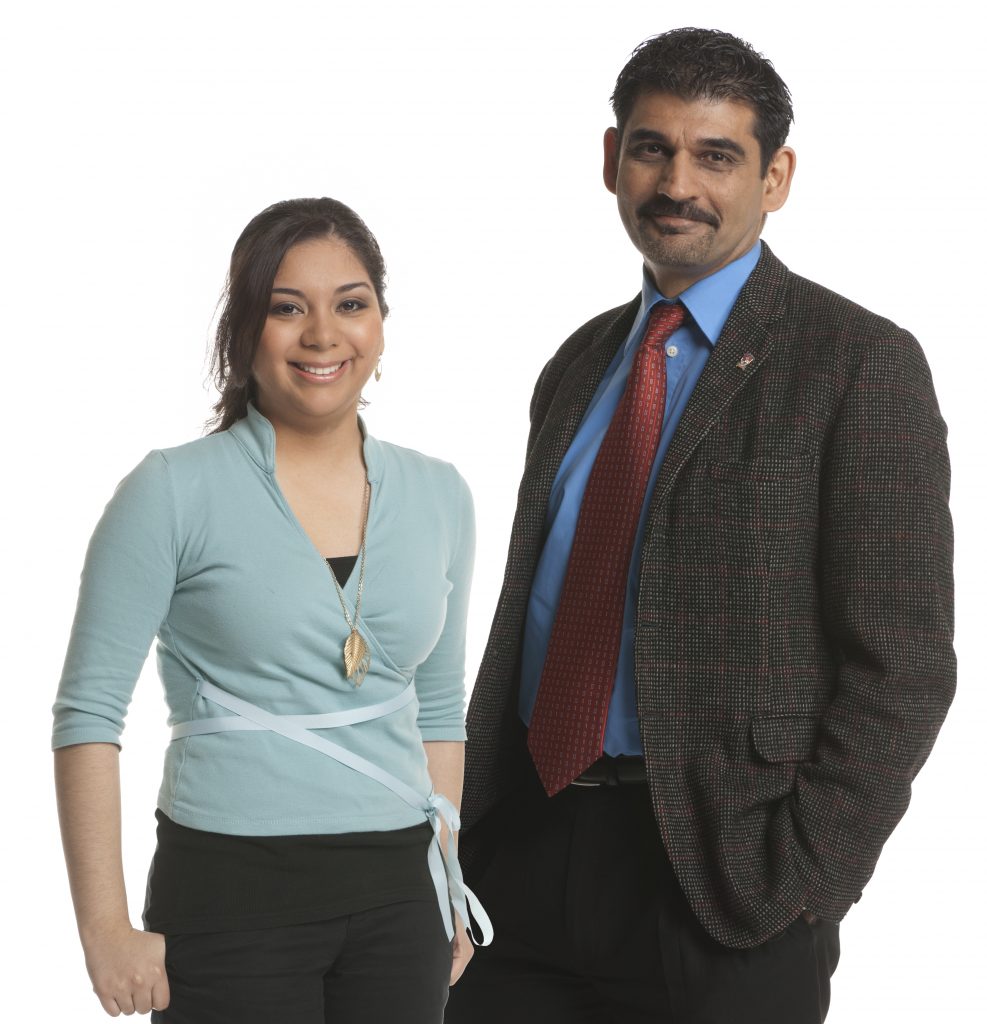Students Pluck Management Case from Vancouver Hockey Riot
Jun 22, 2012

The ethics case team was coached by Sam Thiara, Manager of Student Engagement and Recruitment at the Beedie School of Business, and Beedie alumnus Pam Hernandez.
Undergrads parlay business lessons from post-Stanley Cup mayhem into victories at global ethics competition.
For British Columbia hockey fans and observers of civic affairs, 2011 will be remembered for the troubling Stanley Cup riots in the aftermath of the Vancouver Canucks’ Game 7 loss to the Boston Bruins. The event is something many of the city’s residents would like to forget.
But for a team of students from the Beedie School of Business, the riots were in part a catalyst for a successful journey to Bellevue, Washington to participate in one of North America’s highest-profile business ethics competitions.
The students — Fahad Yasin, Christine Prasad, Sasha Vukovic, Moira van den Akker, and Andrew McKinlay — competed in the LMU/ECOA Intercollegiate Business Ethics Case Competition (IBECC), held in Bellevue, Washington in September.
The team’s chosen ethics case concerned the immediate aftermath of Vancouver’s 2011 Stanley Cup Riot in a human resources context. It revolved around a Lower Mainland construction company whose employee made favourable comments about the riot on his Facebook account.
After receiving upwards of 100 emails from an agitated public and customer-base, the company’s owner had to make a difficult decision of how to react to this public relations nightmare – and how to deal with the employee. The SFU student team examined the situation from the perspective of the employer on the day after the riots.
“What we were really looking at is social media and the role it plays in our society and business,” said Beedie School of Business undergraduate student Andrew McKinlay. “This new phenomenon can be a useful tool, but if used incorrectly, can result in huge costs, both tangible and intangible. While how to use social media most effectively is still unknown, we do know one thing for sure: Social media is blurring the line between our public and private lives.”
The team competed against a prestigious international field that included the likes of Oxford, USC, INSEAD, Holy Cross, and Boston College.
Among the honours they received was winning the Hannah Arendt Essay Award, funded by the Honorable Judge Ruth Kraft of the New York bench, and recognizing the best essay of the competition about the ethical dimensions of a business case.
The team was coached by Sam Thiara, Manager of Student Engagement and Recruitment at the Beedie School of Business, and Beedie alumnus Pam Hernandez.
The competition was jointly sponsored by the Center for Ethics and Business at Loyola Marymount University, the Opus College of Business at the University of St. Thomas and the Ethics and Compliance Officer Association (ECOA). The 2011 competition will be held at the ECOA’s annual business ethics conference in Bellevue.
Teams in the annual competition research a contemporary issue in business ethics of their own choosing and prepare a 20 to 30 minute presentation, which they present to a panel of 4 or 5 judges. Teams explain the legal, financial and ethical dimensions of their problem, and they then propose a solution that must pass muster on all three counts. Judges question the teams for another 30 minutes, and then give the teams feedback on their performance.
